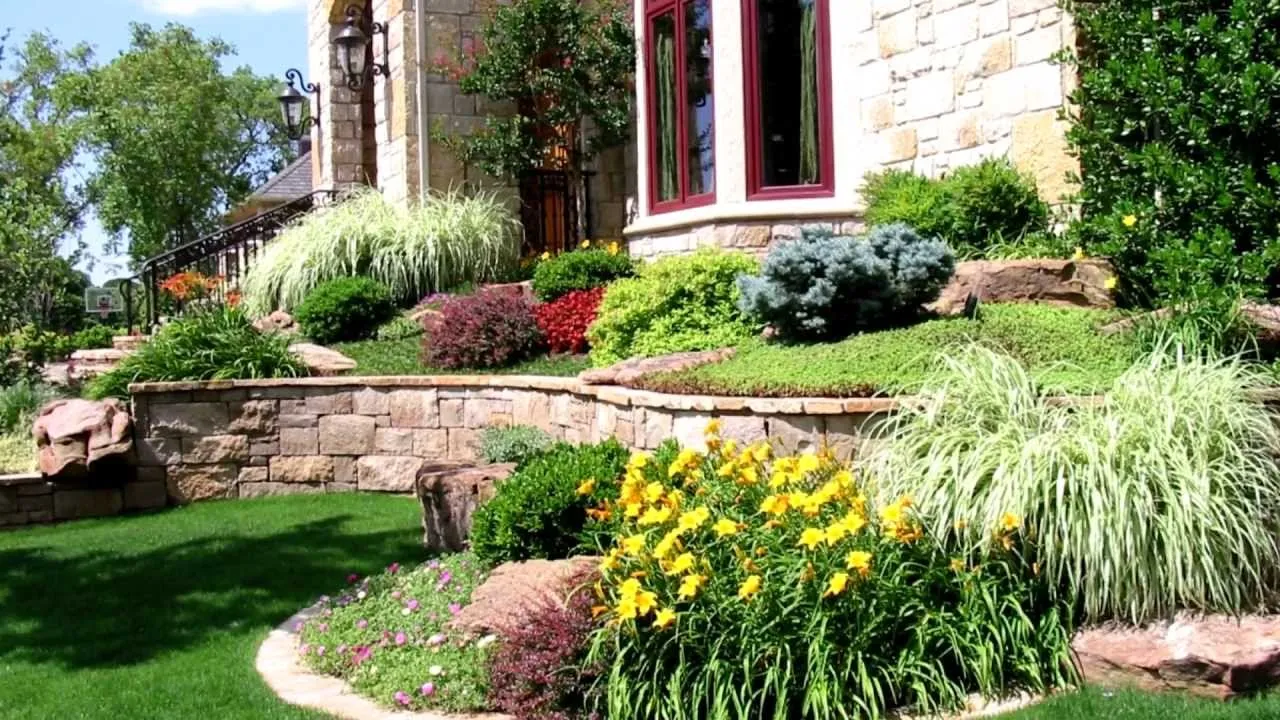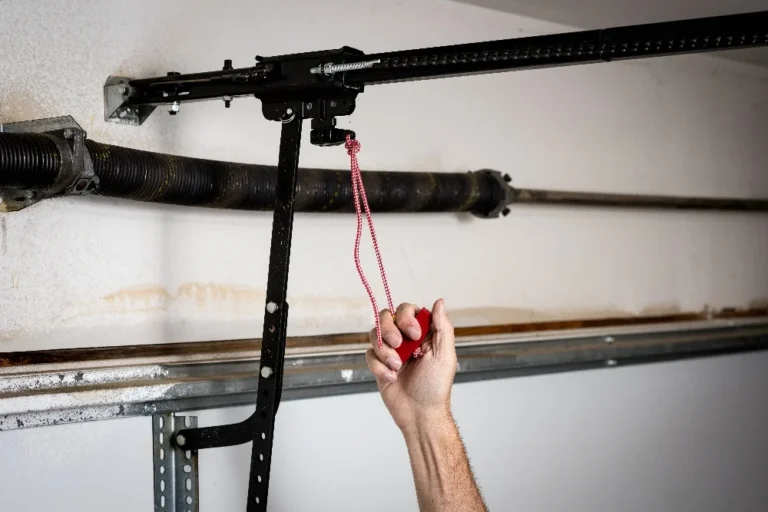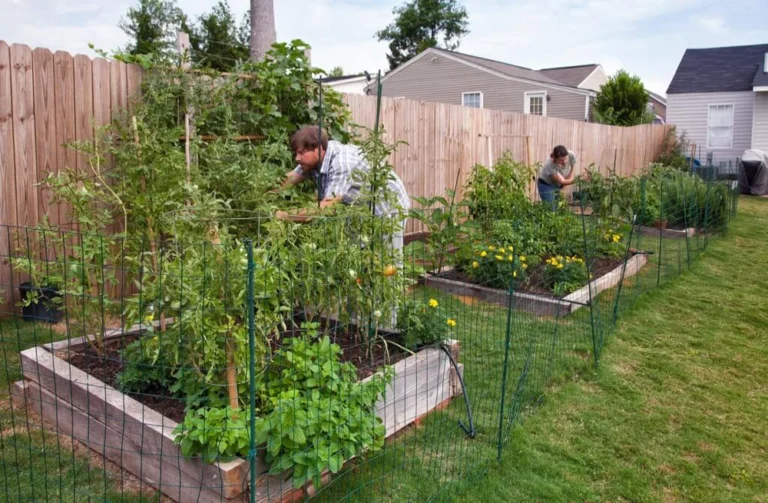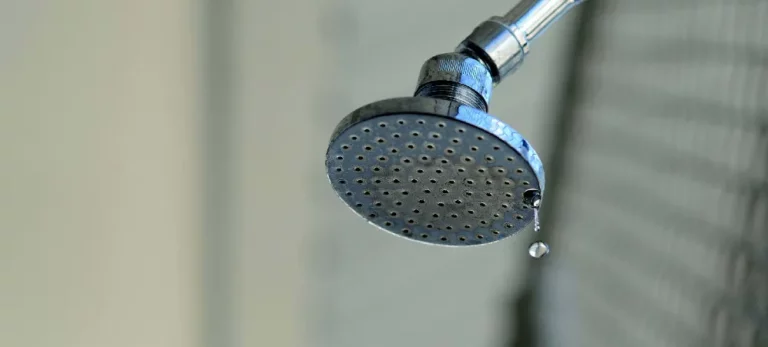why backyard gardening is important
Introduction to Backyard Gardening: Cultivating Health, Happiness, and Sustainability
Welcome to the world of backyard gardening! Whether you have a spacious yard or a cozy balcony, embracing the art of growing your plants can bring immense joy and fulfillment to your life. It’s time to dig in, quite literally!
Backyard gardening has been gaining popularity in recent years as more people recognize the numerous benefits it offers. From improving physical well-being to reducing environmental impact and even saving money on groceries, there are countless reasons why cultivating a garden right outside your door is an essential venture.
We will explore the many advantages of backyard gardening and provide you with practical tips on how to start your flourishing garden. So grab your gloves, sharpen those trowels, and let’s embark on an exciting journey towards greener pastures!
Benefits of backyard gardening
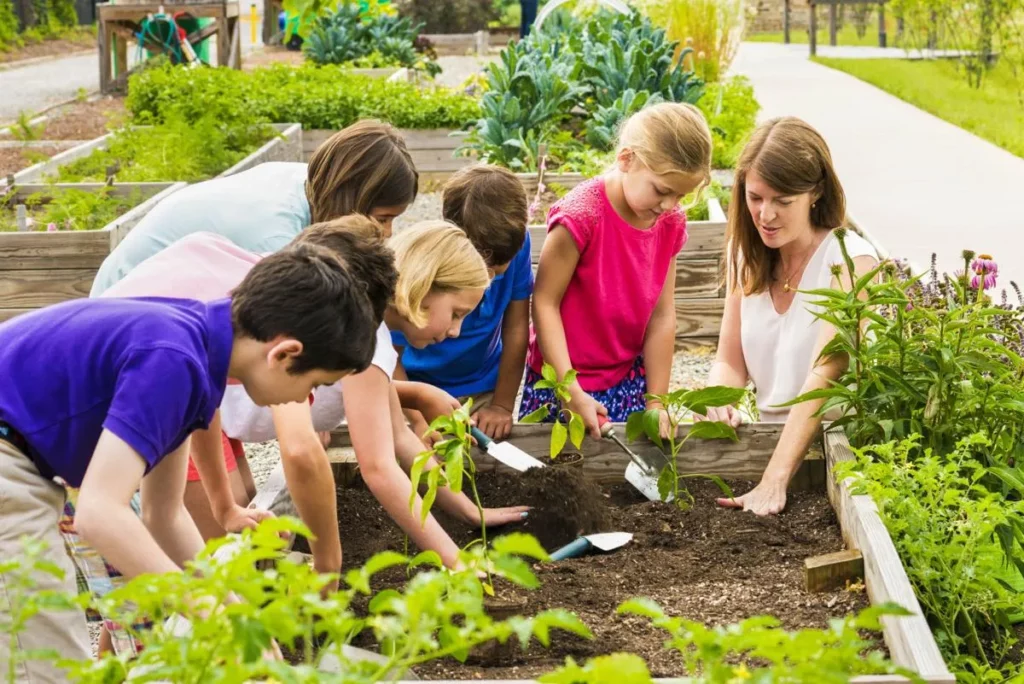
Backyard gardening offers a myriad of benefits that go beyond just growing fresh produce. One of the most significant advantages is the positive impact it has on our health. Spending time outdoors, tending to plants, and getting your hands dirty can improve both physical and mental well-being. The act of gardening itself is a great form of exercise, helping you stay active and burn calories. Plus, being surrounded by nature has been proven to reduce stress levels and boost moods.
Not only does backyard gardening benefit individuals, but it also plays an important role in preserving the environment. By growing your food at home, you reduce your carbon footprint by minimizing transportation emissions from store-bought produce. Additionally, when done organically without harmful pesticides or fertilizers, backyard gardens contribute to biodiversity by providing habitat for beneficial insects and birds.
On top of the health and environmental advantages, backyard gardening can also save you money in the long run. Growing your fruits, vegetables, herbs, and even flowers means fewer trips to the grocery store. This translates into savings on groceries while ensuring that you have access to fresh organic produce right outside your door.
In conclusion (per writing instruction), engaging in backyard gardening brings numerous benefits for both individuals and the planet as a whole: improving health conditions through physical activity and stress reduction; contributing positively towards environmental conservation; saving money through homegrown produce—making it an essential practice worth pursuing!
Health benefits
When it comes to our health, we often think about diet and exercise. But did you know that backyard gardening can also have significant health benefits? It’s true! Here are a few ways that tending to your little patch of green can improve your well-being.
Backyard gardening is a fantastic way to get some physical activity. Digging, planting, and watering all require movement and can help increase your heart rate and build strength. Plus, spending time outdoors in the fresh air and sunshine boosts vitamin D levels, which are essential for bone health.
Being around plants has been shown to reduce stress and improve mental well-being. Gardening allows us to connect with nature and provides a sense of purpose as we nurture something from seedling to harvest. The act of caring for plants also promotes mindfulness and relaxation.
Growing your fruits and vegetables ensures that you have access to fresh produce free from harmful chemicals or pesticides. Eating homegrown produce not only tastes better but is also more nutritious. Consuming a variety of fruits and vegetables supports overall good health by providing essential vitamins, minerals, antioxidants, fiber, and phytochemicals.
Overall,
Backyard gardening offers numerous health benefits, both physical and
mental, making it an excellent choice for promoting general well-being.
So why not grab a shovel or some pots today?
And start reaping the rewards?
Environmental benefits
Backyard gardening isn’t just beneficial for our health; it also has a positive impact on the environment. By growing your fruits, vegetables, and herbs right in your backyard, you are reducing the demand for commercially grown produce that often requires large amounts of water, pesticides, and transportation.
One of the biggest environmental benefits of backyard gardening is the reduction in carbon emissions. Commercial agriculture relies heavily on machinery and transportation to bring food from farms to stores. By growing your food at home, you are cutting out these carbon-intensive processes and reducing your overall carbon footprint.
In addition to reducing carbon emissions, backyard gardening also helps promote biodiversity. When we grow a variety of plants in our gardens, we provide habitat for beneficial insects like bees and butterflies. These pollinators play a crucial role in maintaining ecosystem balance and ensuring the reproduction of many plant species.
Furthermore, backyard gardens can help mitigate soil erosion by providing ground cover with plants’ root systems. This prevents soil from being washed away during heavy rains or strong winds. Additionally, using organic practices like composting can improve soil structure and fertility over time.
By engaging in backyard gardening practices, we not only reap personal rewards but also contribute positively towards environmental conservation efforts without even stepping outside our homes!
Financial benefits
One of the often overlooked benefits of backyard gardening is the potential for significant financial savings. By growing your fruits, vegetables, and herbs, you can greatly reduce your grocery bill and save money in the long run.
Purchasing produce from a supermarket can be expensive, especially if you prefer organic options. However, by cultivating your garden at home, you eliminate the need to buy these items altogether or only purchase what you cannot grow yourself.
Having a backyard garden means that you have a constant supply of fresh ingredients right outside your door. This reduces the temptation to eat out or order takeout regularly since you have everything necessary to prepare healthy meals at home.
Maintaining a garden also encourages self-sufficiency and sustainability. With careful planning and proper techniques such as seed saving and composting, you can create a closed-loop system where all waste materials are recycled back into nourishing soil.
How to start a backyard garden
Starting a backyard garden can be an exciting and rewarding endeavor. Whether you have a sprawling yard or just a small space, anyone can create their little green oasis right at home. So, how do you begin?
Choose the right location for your garden. Look for an area that receives adequate sunlight throughout the day and has good drainage. Next, prepare the soil by removing any weeds or rocks and adding organic matter, like compost, to improve its fertility.
Once your soil is ready, it’s time to select plants and seeds that are suitable for your region and climate. Consider factors such as available space, the level of maintenance required, and personal preferences in terms of aesthetics.
To ensure the success of your backyard garden, proper care is essential. This includes regular watering to keep plants hydrated, providing proper irrigation systems if necessary, and protecting them from pests through natural methods or eco-friendly pesticides when needed.
Remember that starting a backyard garden is not only beneficial for yourself but also for the environment and future generations. It allows you to reconnect with nature while promoting biodiversity in your local ecosystem.
Choosing the right location
When it comes to backyard gardening, choosing the right location is key. You want a spot that receives ample sunlight throughout the day, as most plants need at least six hours of direct sunlight to thrive. Look for an area with good drainage to prevent waterlogging and root rot. Additionally, consider the proximity to your home for convenience and easy access.
Take note of any existing structures or trees that may cast shadows on your garden during certain times of the day. These can hinder plant growth and limit sun exposure. It’s also important to assess the soil quality in your chosen location. Sandy or loamy soils are ideal for most plants, while heavy clay soils may require amendments.
Don’t forget about aesthetics! Choose a spot that you enjoy looking at from your windows or patio so you can appreciate the beauty of your garden throughout all seasons. By carefully selecting the right location for your backyard garden, you’re setting yourself up for success in growing healthy and vibrant plants year-round.
Preparing the soil
Preparing the soil for your backyard garden is a crucial step in ensuring healthy and thriving plants. The quality of your soil directly impacts the growth and productivity of your plants, so taking the time to prepare it properly is essential.
You need to clear any existing vegetation or debris from the area where you plan to create your garden. This will give your new plants room to grow without competition from weeds or other unwanted plants. Then, loosen up the soil by tilling or digging it with a fork. This helps improve drainage and allows plant roots to penetrate deep into the ground.
Next, consider adding organic matter, such as compost or well-rotted manure, to enrich the soil. Organic matter improves fertility, enhances moisture retention, and encourages beneficial microbial activity. Spread a layer of organic matter over the top of the soil and work it in using a garden fork or tiller.
Make sure to test your soil’s pH levels before planting. Most vegetables prefer slightly acidic soils (around pH 6-7), but this can vary depending on what you want to grow. Adjusting pH levels can be done by adding lime for acidity reduction or sulfur for increasing acidity.
By taking these steps to prepare your soil correctly, you are setting yourself up for gardening success!
Selecting plants and seeds
When it comes to selecting plants and seeds for your backyard garden, there are a few key factors to consider. First, think about the types of plants that will thrive in your climate and soil conditions. Research which varieties are best suited for your region, as this will greatly increase the chances of success.
Next, take into account your personal preferences and goals for the garden. Are you looking to grow vegetables? Flowers? Herbs? Determine what types of plants align with your interests and objectives.
Consider the space available in your backyard. Will you be planting directly on the ground or using containers? Some plants require more room to spread out, while others can be grown in smaller spaces.
By carefully selecting plants and seeds that are well-suited for your specific circumstances, you’ll set yourself up for a successful backyard garden that brings joy and beauty throughout the seasons. So take some time to research, make a list of favorites, and get ready to start growing!
Caring for the garden
Caring for the garden is an essential part of backyard gardening. Once you have chosen the right location, prepared the soil, and selected your plants and seeds, it’s time to nurture your garden and help it thrive.
Regular watering is crucial to keeping your plants hydrated. Water them deeply at their base rather than sprinkling water on top of the leaves. Proper irrigation systems can also be installed to ensure a consistent supply of water.
Pest control is important to protect your plants from harmful insects or diseases. Use natural methods like companion planting or organic pesticides to avoid any chemical contamination in your garden.
Mulching and composting are two practices that can greatly benefit your garden. Mulching helps retain moisture in the soil while preventing weed growth, while composting provides nutrient-rich organic matter for healthier plants.
By taking care of these aspects of caring for your garden, you will create an environment where your plants can flourish and thrive! So get out there and enjoy tending to your backyard oasis!
Tips for successful backyard gardening
One of the keys to successful backyard gardening is ensuring that your plants receive adequate water. Regular watering is essential, especially during dry spells or hot summer months. Be sure to check the moisture levels in the soil regularly and adjust your watering schedule accordingly. Proper irrigation techniques can also help maximize water usage and prevent waste.
Another important aspect of backyard gardening is pest control. It’s crucial to keep an eye out for any signs of pests or diseases that could harm your plants. Implementing proper pest control measures, such as using organic pesticides or attracting beneficial insects, can help protect your garden from unwanted visitors.
Mulching and composting are two practices that can greatly benefit your backyard garden. Adding mulch around your plants helps retain moisture in the soil, suppresses weed growth, and improves overall soil health. Composting kitchen scraps and yard waste not only reduces waste but also provides nutrient-rich fertilizer for your garden.
By following these tips for successful backyard gardening, you’ll be well on your way to creating a thriving oasis right in your backyard! Happy planting!
Regular watering and proper irrigation
Regular watering and proper irrigation are crucial for the success of your backyard garden. Plants need water to survive and thrive, so it is essential to provide them with adequate moisture. One way to ensure regular watering is by setting up a consistent schedule. Determine how often your plants need watering based on their specific needs and adjust accordingly.
When it comes to irrigation, there are several methods you can choose from. Drip irrigation systems deliver water directly to the plant’s roots, minimizing waste and ensuring efficient use of water resources. Sprinkler systems are another option, but they may not be as precise in delivering water where it’s needed most.
In addition to regular watering, monitoring soil moisture levels is essential. Overwatering can lead to root rot, while underwatering can cause plants to wilt or die. Use a moisture meter or check the soil with your finger; if it feels dry an inch below the surface, it’s time for some hydration!
Remember that each plant has different requirements when it comes to watering frequency and amount. Take note of any signs of stress, such as drooping leaves or yellowing foliage; these could indicate inadequate watering or improper irrigation techniques.
Proper pest control
Proper pest control is a crucial aspect of backyard gardening. Dealing with pests can be frustrating and overwhelming, but it’s important to address the issue effectively. Here are some tips for keeping your garden free from unwanted critters.
Regular monitoring is essential. Keep an eye out for any signs of pests, such as chewed leaves or droppings. Early detection can help prevent infestations from spreading and causing significant damage.
Consider using natural remedies instead of harsh chemicals. There are many eco-friendly options available that can effectively deter pests without harming beneficial insects or pollinators.
Practicing good garden hygiene is key to preventing pest problems. Remove any fallen fruits or vegetables promptly, as they may attract pests. Also, keep your garden clean and tidy by removing weeds regularly to eliminate hiding places for pests.
By implementing proper pest control measures in your backyard garden, you’ll not only protect your plants but also promote a healthier ecosystem overall.
Mulching and composting
One important aspect of backyard gardening that shouldn’t be overlooked is mulching and composting. Mulching involves covering the soil around your plants with a layer of organic material, such as straw or leaves. This has several benefits, including conserving moisture in the soil, suppressing weed growth, and regulating soil temperature.
Composting, on the other hand, is the process of decomposing organic waste materials to create nutrient-rich compost. By composting kitchen scraps and yard waste, you can reduce household waste while also providing your garden with a natural fertilizer. Compost improves soil structure and fertility enhances water retention capabilities and promotes healthy root development.
When it comes to mulching and composting in your backyard garden, there are a few things to keep in mind. Choose organic mulch materials that will break down over time to enrich the soil further. Ensure proper airflow by not piling up mulch too high around plant stems. Regularly turn your compost pile or use a rotating composter for faster decomposition.
Mulching and composting are simple yet effective practices that can greatly benefit your backyard garden. By incorporating these techniques into your gardening routine, you’ll be nurturing healthier plants while reducing waste in an eco-friendly way!
Inspiring success stories of backyard gardeners
When it comes to backyard gardening, countless success stories inspire and motivate. Take Jane, for example. She transformed her small urban backyard into a flourishing oasis of fruits, vegetables, and herbs. What started as a hobby quickly turned into a passion as she realized the joy of growing her food.
Then there’s Mike and Sarah, who live in an apartment with limited outdoor space. Undeterred by their lack of land, they created a vertical garden on their balcony using hanging baskets and trellises. Now, they have an abundance of fresh produce right outside their door.
And let’s not forget about Tom and Lisa, who decided to teach their children about sustainable living through gardening. They set up raised beds in their backyard, where the whole family gets involved in planting, watering, and harvesting delicious organic vegetables together.
These inspiring stories show us that anyone can become a successful backyard gardener with determination and creativity. Whether you have acres or just a few square feet to work with, don’t underestimate the power of nature and your green thumb!
Conclusion and final thoughts on the importance of backyard gardening
Backyard gardening has become a potent solution in today’s fast-paced world, where stress levels are high and access to fresh, healthful food is limited. It not only allows you to grow your produce but also offers numerous benefits for your health, the environment, and your wallet.
By engaging in backyard gardening, you can reap the rewards of improved physical and mental well-being. The act of tending plants and being surrounded by nature has been shown to reduce stress levels, promote relaxation, and even boost mood. Plus, consuming home-grown fruits and vegetables ensures that you are getting the freshest produce packed with essential nutrients.
Backyard gardening also plays a vital role in preserving our planet. By growing your food organically without harmful pesticides or chemicals, you contribute to reducing pollution levels in both the air and waterways. Additionally, cultivating a garden helps promote biodiversity by providing habitats for beneficial insects like bees and butterflies.
Financially speaking, starting a backyard garden can save you money in the long run. With rising grocery costs and unpredictable market prices for fresh produce, having access to home-grown fruits and vegetables means fewer trips to the supermarket. Not only will this cut down on expenses, but it will also provide an opportunity for self-sustainability.
If you’re ready to embark on this rewarding journey of backyard gardening yourself, here are some tips for success:
1. Regular watering: Ensure that your plants receive adequate water according to their specific needs.
2. Proper pest control: Implement natural methods such as companion planting or organic pest repellents.
3. Mulching and composting: Use mulch materials around plants’ base areas while maintaining compost bins for nutrient-rich soil.
Now, let’s draw inspiration from some remarkable stories of successful backyard gardeners who have transformed small spaces into thriving green oases.
